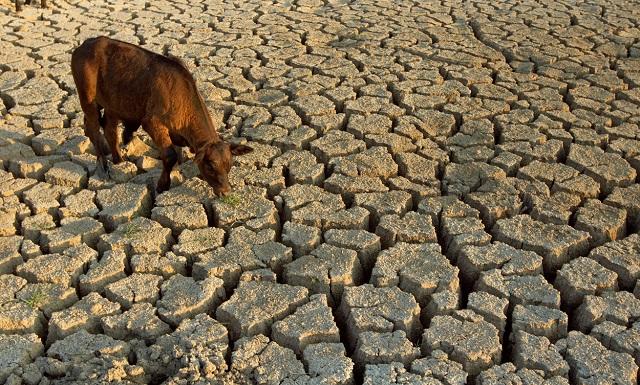News / National
Drought kills 9 000 cattle in Zimbabwe
03 Apr 2024 at 05:05hrs |
0 Views

ZIMBABWE has recorded approximately 9 000 drought-related cattle deaths with over 1,4 million more reported to be at high risk due to lack of pasture and water, the USAid's food security arm has said.
Zimbabwe is battling an El Nino cycle of warming and cooling events that happens along the Equator in the Pacific Ocean leading to an increase in sea surface temperatures across the ocean.
The El Niño weather phenomenon has resulted in erratic rainfall patterns across Zimbabwe leading to widespread crop failure and water shortages.
The Agriculture and Rural Development Advisory Service (ARDAS) in 2023 disclosed that cumulative cattle poverty deaths reported last season stood at 7 643, with Matebeleland South the most affected having lost 4 432 animals, followed by Matebeleland North 2 573, Midlands 735 and Masvingo 103.
However, according to the USAid's Famine Early Warning Systems Network (FewsNet)'s latest report more than 1,4 million cattle are at risk of death due to drought conditions.
"In Zimbabwe, over 9 000 drought-related cattle deaths have been reported, and over 1,4 million cattle were reported as being at high risk of drought conditions and death due to lack of pasture and water," FewsNet said.
"Water and pasture conditions are expected to be poor, especially in typically low-rainfall areas following cumulatively below-average rainfall that has limited pasture regeneration throughout the rainy season. "Poor livestock body conditions, particularly for cattle, will likely lead to higher-than-normal livestock deaths in the dry season as the limited pastures deplete and high prices limit access to supplementary feeds."
FewsNet said poor water availability and access were expected to negatively impact on households' ability to engage in casual labour, construction-related activities, vegetable production and sales and other livelihood and coping activities.
"An increase in human-wildlife conflicts is expected in some areas bordering parks and forests as wild animals seek water and food among communities," the agency said.
It further revealed that there was an urgent need for comprehensive national assessments of crop conditions, livestock health, and overall livelihood impacts of the extended dry conditions.
"These assessments are crucial for accurately determining the extent of damage and areas requiring immediate intervention and will not only guide targeted relief efforts but also inform policy development and programme implementation aimed at enhancing agricultural resilience. Further, member States need to start preparing for in-depth assessments that will inform responses."
Zimbabwe is battling an El Nino cycle of warming and cooling events that happens along the Equator in the Pacific Ocean leading to an increase in sea surface temperatures across the ocean.
The El Niño weather phenomenon has resulted in erratic rainfall patterns across Zimbabwe leading to widespread crop failure and water shortages.
The Agriculture and Rural Development Advisory Service (ARDAS) in 2023 disclosed that cumulative cattle poverty deaths reported last season stood at 7 643, with Matebeleland South the most affected having lost 4 432 animals, followed by Matebeleland North 2 573, Midlands 735 and Masvingo 103.
However, according to the USAid's Famine Early Warning Systems Network (FewsNet)'s latest report more than 1,4 million cattle are at risk of death due to drought conditions.
"Water and pasture conditions are expected to be poor, especially in typically low-rainfall areas following cumulatively below-average rainfall that has limited pasture regeneration throughout the rainy season. "Poor livestock body conditions, particularly for cattle, will likely lead to higher-than-normal livestock deaths in the dry season as the limited pastures deplete and high prices limit access to supplementary feeds."
FewsNet said poor water availability and access were expected to negatively impact on households' ability to engage in casual labour, construction-related activities, vegetable production and sales and other livelihood and coping activities.
"An increase in human-wildlife conflicts is expected in some areas bordering parks and forests as wild animals seek water and food among communities," the agency said.
It further revealed that there was an urgent need for comprehensive national assessments of crop conditions, livestock health, and overall livelihood impacts of the extended dry conditions.
"These assessments are crucial for accurately determining the extent of damage and areas requiring immediate intervention and will not only guide targeted relief efforts but also inform policy development and programme implementation aimed at enhancing agricultural resilience. Further, member States need to start preparing for in-depth assessments that will inform responses."
Source - newsday
Join the discussion
Loading comments…




































